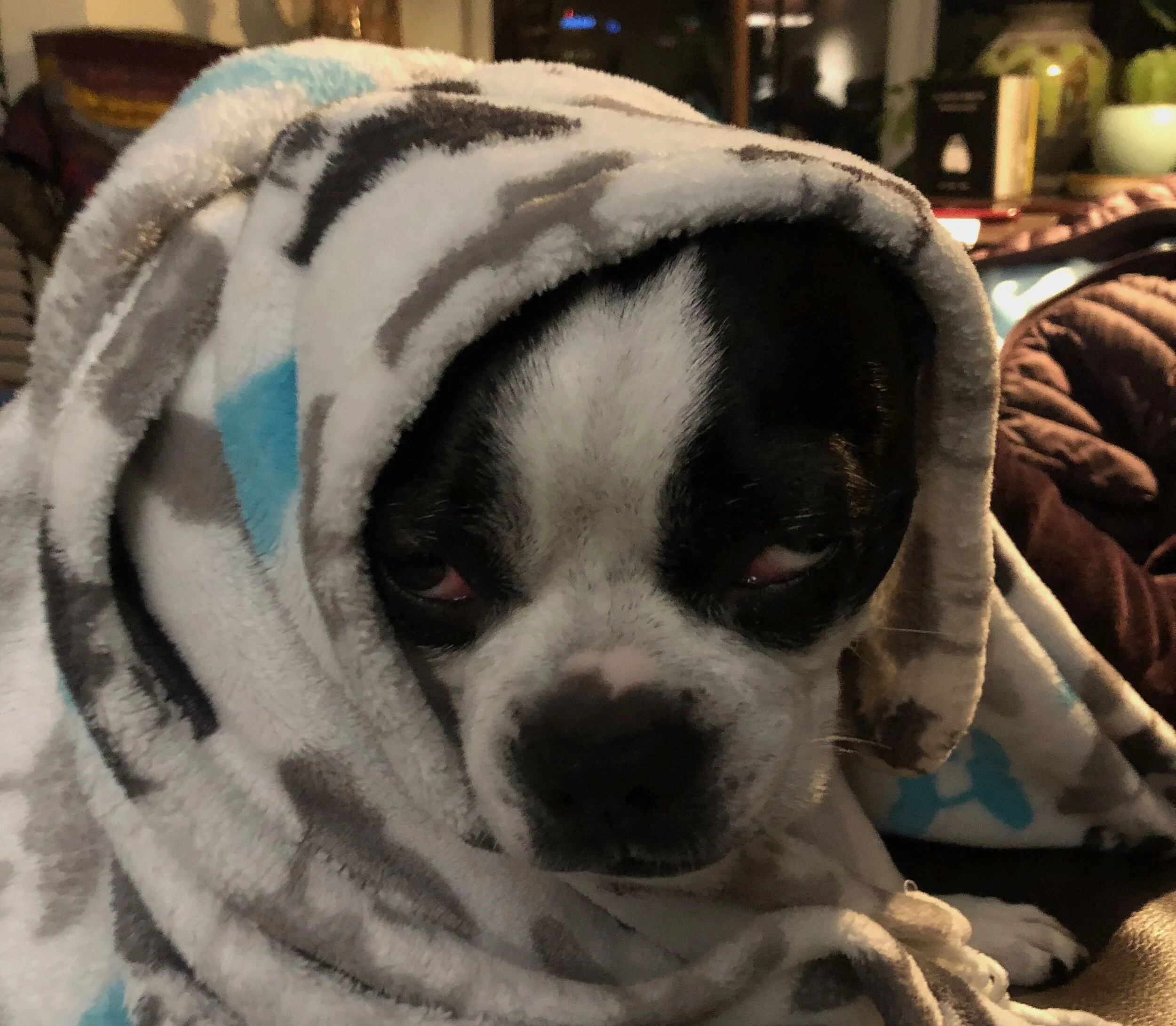Possibly the only thing worse than feeling really sick is watching someone you love struggle through an illness. It can be especially agonizing when it’s your feathered or fur-baby who’s under the weather.
About 10 days ago, our Lilly, the Boston terrier, suddenly became listless. Her appetite sank like a stone. She ate grass to soothe her tummy then heaved like I did the night I swore off shellfish forever.
The following day, her chest rattled and she made those snorting sounds common among brachycephallic (short snouted) dogs trying to clear their sinuses. By evening, Lilly’s snorts devolved into the rasps of an outboard motor dying in the middle of a lake.
My wife, Susan, and I rushed Lilly to the vet. The crackles in her chest suggested pneumonia caused by aspiration of her vomit. They took chest films. She was dehydrated. They injected fluids behind the scruff of her neck. We brought her home the same night. She bore the hump of a dromedary camel, but looked and sounded better.
Next morning, the three of us woke up in a small pool of thick, yellow snot. Lilly’s nose ran incessantly. Her rectal temperature was 103.7 (normal for dogs and cats ranges from 101 to 102.5). By the time we got her admitted to the hospital, her fever spiked to 105. The X-Rays taken the day before came back negative. Her final diagnosis: unspecified upper respiratory infection. Lilly stayed in the hospital for two days for observation.
Thanks to antibiotics and time, Lilly’s rasps are returning to familiar piglet-snorts. She’s perky, hungry and ready for walks and fetch. Lilly appears to be on the road to recovery. Her parents may take a little longer.
While Lilly was in the throes of her infection, the secretions in her chest and snout settled late at night. She gurgled with each breath, the crackles and snaps growing louder over time. Susan was especially attuned to Lilly’s breathing. She stirred, leaned over Lilly, put her ear to her chest and cooed reassuringly. Lilly quieted down for a few moments, then the wet respirations resumed. For more than a week, we couldn’t muster a good night’s sleep between us.
We’d been through a health scare before with Lilly. In 2016, Lilly developed a GI issue that left her incontinent. The volume and consistency of her droppings about the house almost warranted cleaning with a wet vac. At the time, we were told her condition could be permanent, requiring her to wear a diaper indoors. We were ready for what might come. To our delight, she bounced back quickly.
But Lilly was younger (and so were we). Five years later, I marvel at the galaxy of white hairs frosting the black patches around her eyes. They weren’t there last year! Neither was that new crinkle below my lower eyelid. Five years ago, Susan, Lilly and I were a high-energy trio rooted in Southern California. Now, our family walks are a bit shorter, hearty play sessions end sooner and we’re on the verge of turning “home” on its head.
We three are poised on the edge of life’s “Third Act.” We’re making changes and taking risks at an age when many might choose to hunker down or settle back. In short, we’re feeling more vulnerable than we used to be.
Four-legged empath that she is, Lilly probably senses that change is afloat, though she was not blessed with the cerebrum to process it all. It’s possible that Susan and I had transmitted our stressors to Lilly leaving her more susceptible to illness.
It’s only natural that we want to be there unconditionally for our suffering pets as they always shrug off their own suffering to comfort us. But there is a huge difference between being present and engaged with our pets as they weather illness and becoming enmeshed with their disease process.
By over-identifying with Lilly’s suffering, the more exhausted and impaired we became. Ironically, we rendered ourselves less capable of caring for the being that means almost as much to us as each other. We also projected our own agony onto her, possibly slowing — or even reversing — her recovery.
We’re learning that a centered pet parent can be strong medicine.

